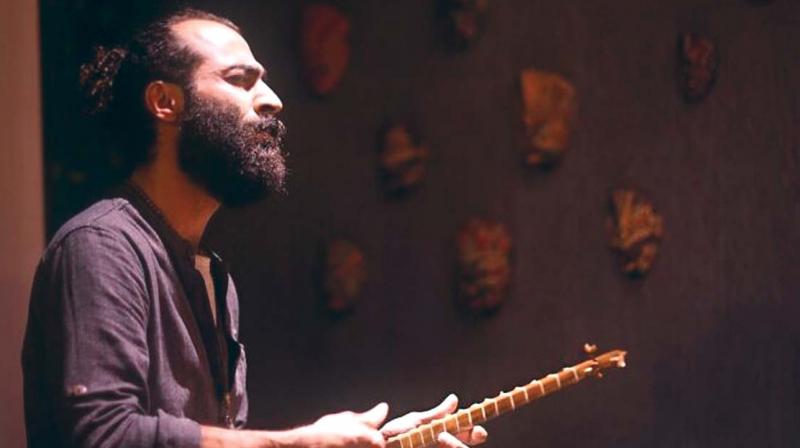Tarighat: The divine songs of the heart
The ancient sounds of Sufi music will be heard in the city at an upcoming event.

In the unlikely medley of psychedelic music, Sufi music and Dhrupad, the common thread is the 38-year-old Iranian singer Mehdi Tebyanian. Well versed in first two and intensely training in the third, Tebyanian will be showcasing the beauty of Sufi music in an upcoming event Soul Sojourn this weekend along with Indian Sufi singer Khanak Joshi.
Hailing from the land known for Sufi poets, Tebyanian says he grew up listening to Sufi poetry and music as a child. At home, in school; the influence was so profound that he claims to know Sufi poetry from the ancient past and the present. “Sufi singing in Iran began about 1000 years back so we have it in our culture. I think it’s in our blood,” he said. As for Tebyanian, his grandfather was Sufi who would go to zikr (gatherings) wearing his Sufi hat, a specialised headdress. “As a young boy, I just wanted to be like him. He had a beautiful moustache,” he remembered. “He taught me so much about Sufi and Derwish.”
But instead of Sufi, Tebyanian started off as a DJ at 18, experimenting with electronic and psychedelic music because that was what friends his age were into.
“For 10 years I did that until I went to an ancient Sufi zikr in 2008 in Shiraz, an old city of Iran. There I heard the sound of Tanbour,” he said. That is one of the oldest instruments with 4000 years of history which is usually played in Sufi zikr and whirling dances or Derwish. “The sound changed me totally,” he said. “It changed my life.”
Learning to sing Sufi music was a personal journey, with no teacher or guru. Instead he turned to traditional Iranian singers and music, from singers like Mohammad Reza Lotfi to Homayoun Shahjarin, and the poetry of Rumi, Khayyam, Hafiz and Amir Khusrow. Since then, he has been singing Sufi music as well as fusion.
Talking about the event, the two singers will be singing songs together and solo, bringing in their traditions and languages. For instance, Indian Sufi music has Urdu lyrics while Iranian Sufi music is in Persian. But Tebyanian swears by the universality of this music, which he says isn’t about language as much as it is about feeling and energy. “That is important,” he pointed out. “For the listener to feel the music and ‘float’ with it, it isn’t important to understand the meaning.”
Still, he quotes from the Guest House, a poem by Rumi as his favourite.
This being human is a guest house.
Every morning a new arrival.
A joy, a depression, a meanness,
some momentary awareness comes
as an unexpected visitor.
Welcome and entertain them all!
Even if they are a crowd of sorrows,
who violently sweep your house
empty of its furniture,
still, treat each guest honourably.
The emotions in Sufi verses are so profound that Tebyanian calls Sufi as a way of life. It is not just music and singing, he says, but a complete lifestyle. “In our culture there are two ways to reach heaven and God; one is to follow the religion - the Shariaat, and the second way is to follow your heart - Tarighat. Rumi was following Shariaat and learnt all things of this path but he turned to Tarighat. I think Tarighat is the direct way to God as it is from the heart.”
With Sufi in his heart and mind, Tebyanian is clear about Dhrupad. “For a musician, Dhrupad is good knowledge.” With the complex and traditional style of music, he hopes to find the right notes. If the human larynx is an instrument then, just as his Tanbour has its own natural frequencies, he hopes to find the right frequency of his voice. “Only then will my Sufi singing will lift the listeners.” To continue the tradition of Sufi singing, it is important that the voice resonates with the emotions it conveys.
What: Soul Sojourn
When: June 29, 7pm at Lahe Lahe and June 30, 7pm at
Atta Galatta

